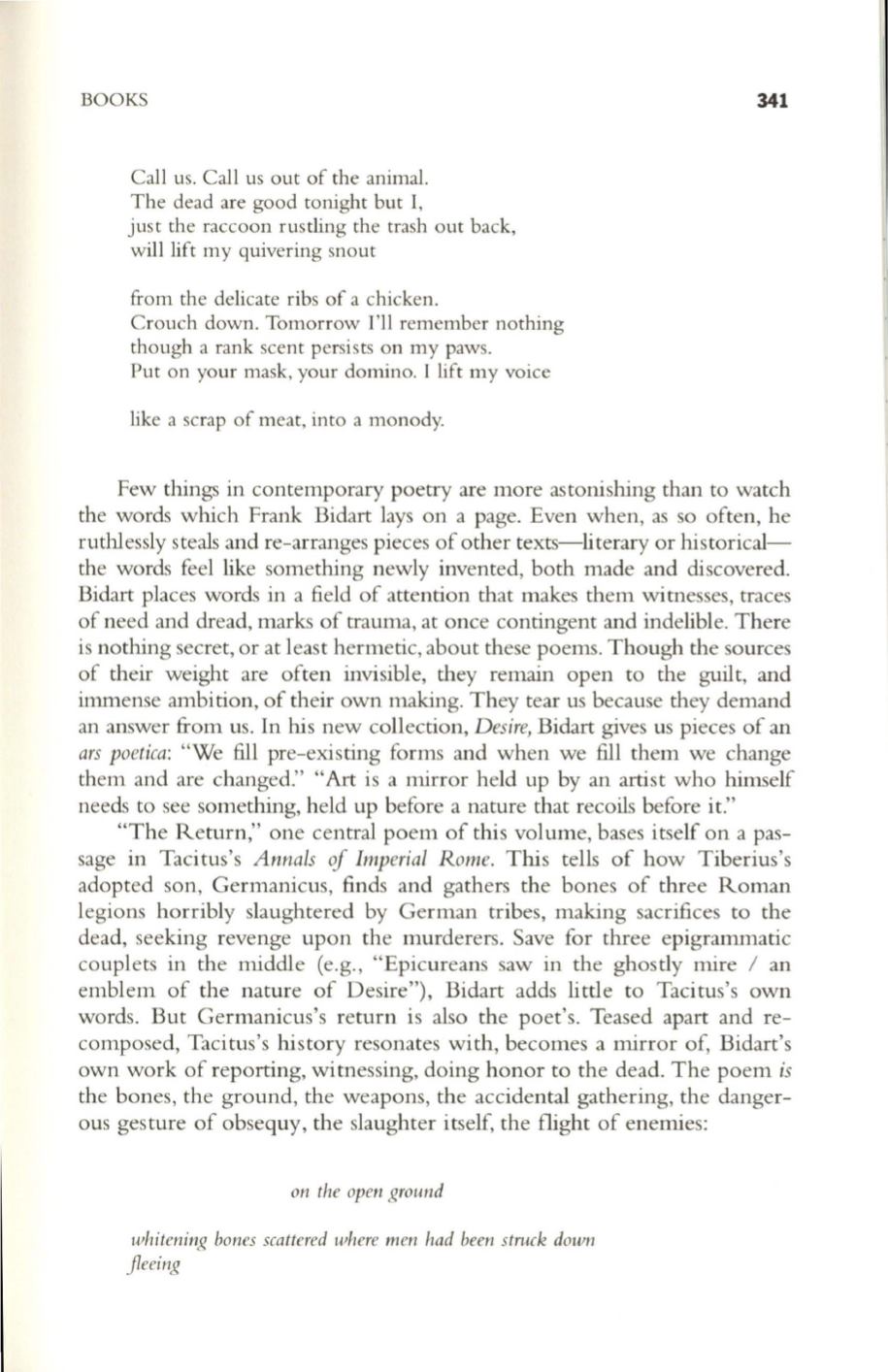
BOOKS
Call us. Call us out of the animal.
The dead are good tonight but I,
just the raccoon rustling the trash out back,
will lift my quivering snout
from the delicate ribs of a chicken.
Crouch down. Tomorrow I'll remember nothing
though a rank scent persis ts on my paws.
Put on your mask, your domino. I lift my voice
like a scrap of meat, into a monody.
341
Few things in contemporary poetry are more astonishing than to watch
the words which Frank Bidart lays on a page. Even when, as so often, he
ruthlessly steals and re-arranges pieces of other texts-literary or historical–
the words feel like something newly invented, both made and discovered.
Bidart places words in a field of attention that makes them witnesses, traces
of need and dread, marks of trauma, at once contingent and indelible. There
is nothing secret, or at least hermetic, about these poems. Though the sources
of their weight are often invisible, they remain open to the guilt, and
immense an1bi tion, of their own making. They tear us because they demand
an answer from us. In his new collection,
Desire,
Bidart gives us pieces of an
ars poetiea:
"We fill pre-existing forms and when we fill them we change
them and are changed."
"Art
is a mirror held up by an artist who himself
needs to see something, held up before a nature that recoils before it."
"The Return," one central poem of this volume, bases itself on a pas–
sage in Tacitus's
Annals of Imperial Rome.
This tells of how Tiberius's
adopted son, Germanicus, finds and gathers the bones of three Roman
legions horribly slaughtered by German tribes, making sacrifices to the
dead, seeking revenge upon the murderers. Save for three epigrammatic
couplets in the middle (e.g., "Epicureans saw in the ghostly mire / an
emblem of the nature of Desire"), Bidart adds little to Tacitus's own
words. But Germanicus's return is also the poet's. Teased apart and re–
composed, Tacitus's history resonates with, becomes a mirror of, Bidart's
own work of reporting, wi tnessing, doing honor to the dead. The poem
is
the bones, the ground, the weapons, the accidental gathering, the danger–
ous ges ture of obsequy, the slaughter itself, the flight of enemies:
on the open ground
whitening bones scattered where men had been struck down
fleeing


